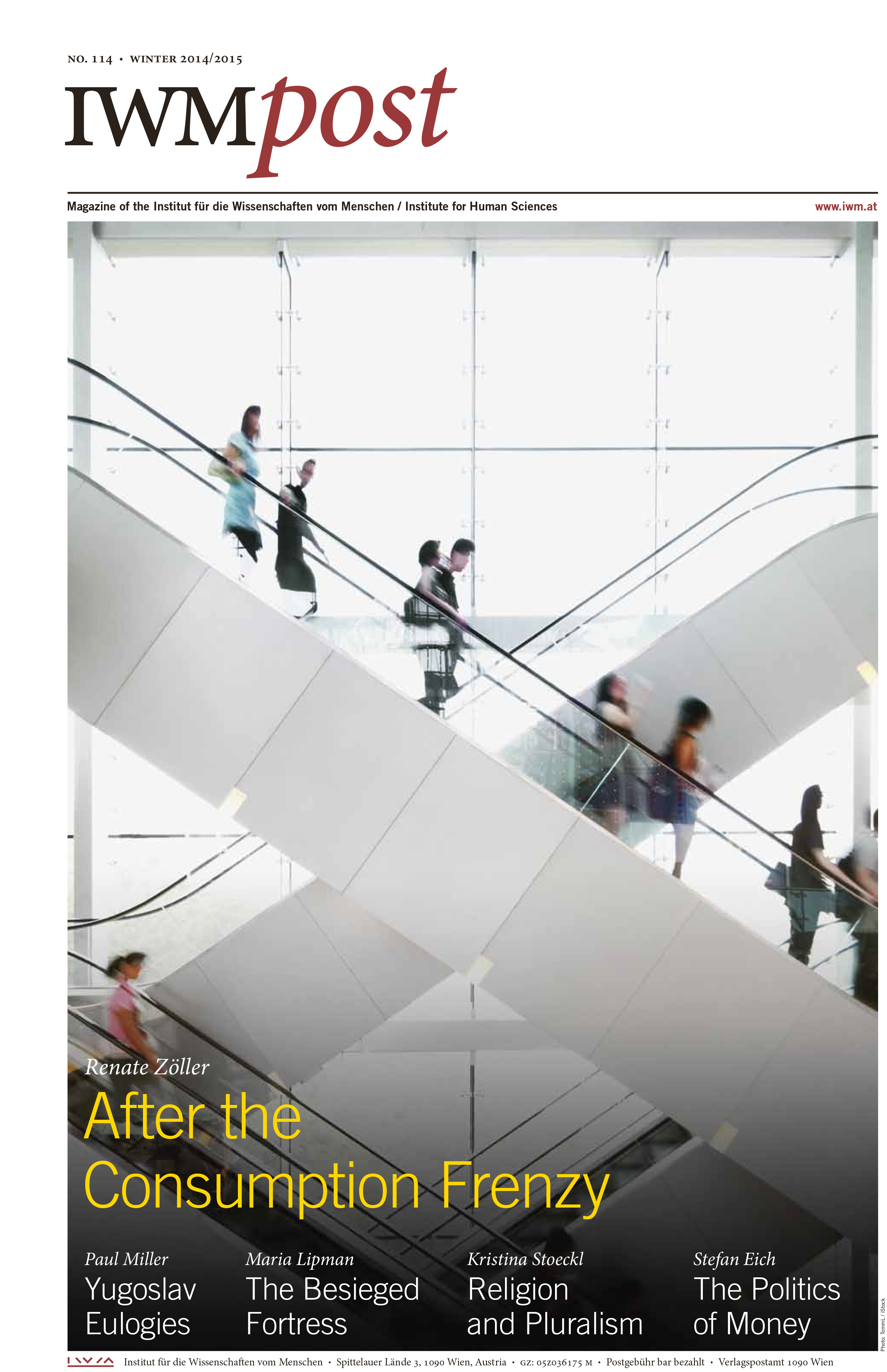The start of the First World War, the fall of the Berlin Wall and the EU’s Eastern enlargement—2014 was a year of anniversaries and commemoration, which the IWM also marked by various events. Whereas the first of the Burgtheater debates discussed the manifold and lasting consequences of the First World War, this edition’s opening article by Paul Miller returns to the place where it all began, to Sarajevo and the assassination of Franz Ferdinand, heir to the Austro-Hungarian throne. For Miller, Gavrilo Princip’s footprints stand symbolically for the traces which this event has left in the collective memory of the former Yugoslavia and beyond. This year’s summer school also focused on exploring historical narratives and cultural memories by looking at problems in 20th-century modern East European and Soviet history, including the violence of the mid-century, and the transformative events of 1989.
Another event of great importance for Europe—the accession of several central and eastern European countries in the EU—was the subject of a conference in April 2014, cohosted by the IWM, which reflected on achievements and lessons learnt and discussed possible future political and economic developments. Against the background of the ongoing crisis in Ukraine and the increasing isolation of Russia, three articles in this edition attempt to understand Vladimir Putin’s geopolitical strategy, and propose how the West might respond.
This issue also addresses the transformation of consumerism over time in two articles, discussing examples from the communist and post-communist era, respectively. The first shows how Hungary’s state apparatus class of the 1960s tried to discourage people from buying a car, using the genre of the ‘dissuading film’. The second article is a reportage on the current situation in the Czech city of Liberec, where the combined effects of privatization, corruption and the absence of urban planning have resulted in desolate city centers and empty shopping malls.
Finally, this issue pays tribute to the philosophical work of two influential European thinkers who have remained relevant to this day: Jan Patočka and his concept of religion, which was the subject of an IWM research project which ended this year, as well as Bernard Bolzano’s extensive literary estate which is published in a collected edition.
Download the IWMpost 114 as a PDF
Contents
First World War Centenary
Yugoslav Eulogies: The Footprints of Gavrilo Princip / by Paul Miller
From the Fellows
Don’t Waste the Gas! / by György Péteri
After the Consumption Frenzy / by Renate Zöller
The Past is a Work-in-Progress: Also in Art History / by Éva Forgács
The Politics of Money / by Stefan Eich
Conferences
The 2004 EU Enlargement—Ten Years After
Religion and Pluralism / Report by Kristina Stoeckl
Ukraine: Thinking Together
Events in Retrospect
Russia in Global Dialogue
Eurasian Union: Russia’s Failing Quest For Greatness / by Aliaksei Kazharski
Commander of a Fortress under Siege / by Maria Lipman
IWM Summer School
Problems in Modern East European & Soviet History / Report by Amieke Bouma
Fellows and Guests
The Philosophical Work of Jan Patocka
Religion and the Crisis of Modernity / by Ludger Hagedorn
Publications
„Heiterkeit des Geistes“ Bolzanos Erbauungsreden / von Peter Demetz
Books, Articles and Talks
Varia
Upcoming Events/Open Calls

